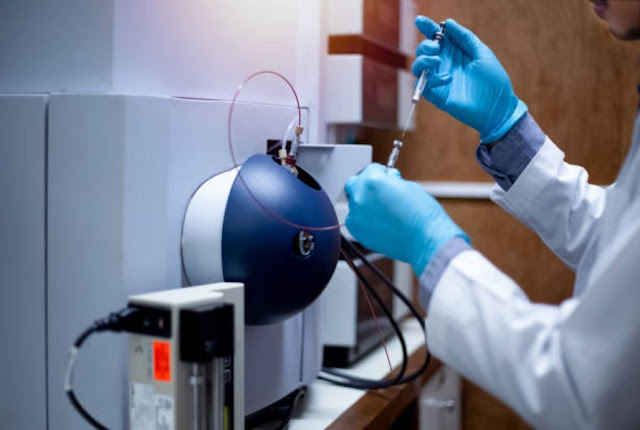The Importance Of Fluid Intake In Human Body
Fluid intake is of paramount importance for the human body as it plays a crucial role in maintaining overall health and well-being. Water is an essential component of the human body, constituting about 60% of an adult's total body weight. Here are some of the key reasons why fluid intake is so important:

Hydration: Proper hydration is vital for the functioning of
virtually all bodily systems. It helps maintain the balance of bodily fluids,
including blood, lymph, and the fluids inside and outside cells. Dehydration
can lead to a range of health issues, from mild discomfort to severe medical
emergencies.
Temperature Regulation: Water is essential for regulating
body temperature. When you get too hot, your body sweats to cool down, and the
evaporation of sweat helps dissipate heat. Without sufficient fluid intake,
your body's ability to regulate temperature is compromised.
Cognitive Function: Dehydration can impair cognitive
function, leading to difficulties with concentration, alertness, and short-term
memory. Staying properly hydrated can help maintain mental clarity and focus.
Digestion and Nutrient Absorption: Water is necessary for
the proper functioning of the digestive system. It helps break down food, aids
in the absorption of nutrients, and facilitates the passage of waste through
the digestive tract. Inadequate fluid intake can lead to constipation and other
digestive issues.
Detoxification: The body relies on water to help flush out
waste products and toxins through the kidneys and liver. Sufficient hydration
is essential for the effective removal of waste and maintenance of healthy
organ function.
Joint Health: Adequate fluid intake helps lubricate and
cushion the joints, which is crucial for preventing joint pain and maintaining
mobility.
Skin Health: Hydrated skin looks healthier and is more
resilient. Insufficient hydration can lead to dry, flaky skin, and may
exacerbate skin conditions such as eczema.
Exercise Performance: Athletes and individuals engaging in
physical activity need to stay well-hydrated to perform at their best.
Dehydration during exercise can lead to decreased endurance and an increased
risk of heat-related illnesses.
Weight Management: Drinking water before meals can help with
weight management by promoting a feeling of fullness and reducing the
likelihood of overeating.
Blood Pressure Regulation: Proper fluid balance is essential
for maintaining healthy blood pressure. Dehydration can lead to a drop in blood
pressure, which may result in dizziness and other health problems.
Heart and Kidney Health: Sufficient fluid intake is crucial
for maintaining the health of the heart and kidneys. Dehydration can strain
these organs and increase the risk of various cardiovascular and renal
conditions.
It's important to note that individual fluid needs vary
based on factors like age, sex, activity level, and climate. As a general
guideline, it's recommended to drink at least 8 glasses (about 2 liters) of
water per day, but your specific needs may be higher, especially if you're
physically active or in a hot, dry environment. Paying attention to your body's
signals of thirst and the color of your urine can also help you gauge your
hydration status. Overall, ensuring adequate fluid intake is a fundamental aspect
of maintaining good health and preventing a range of health issues associated
with dehydration.
Hydration
Hydration refers to the process of providing the body with
an adequate amount of fluids, primarily water, to maintain proper bodily
functions and overall health. It is the act of replenishing the body's lost
fluids and maintaining the balance of fluids within the body. Proper hydration
is essential for a variety of physiological processes and is critical for
overall well-being. Here are some key aspects of hydration:
Water Balance: The human body constantly loses fluids
through various means, such as urine, sweat, respiration, and digestion. To
maintain health, it's crucial to replace these lost fluids by drinking water
and consuming foods with high water content.
Thirst Regulation: Thirst is the body's natural mechanism
for signaling the need for more fluids. When you feel thirsty, it's your body's
way of telling you to drink water to maintain proper hydration. Ignoring thirst
can lead to dehydration.
Electrolyte Balance: Hydration isn't just about water; it
also involves maintaining the balance of electrolytes (sodium, potassium,
calcium, etc.) in the body. Electrolytes are essential for various bodily
functions, including nerve function, muscle contraction, and maintaining proper
fluid levels within cells and tissues.
Physical Performance: Proper hydration is critical for
athletes and individuals engaged in physical activities. Dehydration can lead
to reduced endurance, muscle cramps, and an increased risk of heat-related
illnesses during exercise.
Temperature Regulation: Adequate hydration helps the body
regulate temperature by facilitating sweating and the evaporative cooling
process. This is especially important in hot weather and during physical
exertion.
Cognitive Function: Dehydration can impair cognitive
function, affecting concentration, alertness, and mental clarity. Staying
properly hydrated is essential for maintaining cognitive performance.
Digestion and Nutrient Absorption: Hydration is crucial for
the digestive system to function properly. Water aids in breaking down food,
absorbing nutrients, and moving waste through the digestive tract.
Detoxification: Proper hydration is necessary for the body's
natural detoxification processes. It helps remove waste products and toxins
through the kidneys and liver.
Joint and Skin Health: Hydration is important for
lubricating joints and maintaining skin health. Dehydration can lead to dry,
painful joints and dry, flaky skin.
Heart and Kidney Health: Maintaining fluid balance is
essential for the health of the heart and kidneys. Dehydration can strain these
organs and increase the risk of various cardiovascular and renal conditions.
To stay adequately hydrated, it's important to drink enough
water throughout the day, eat foods with high water content (such as fruits and
vegetables), and pay attention to your body's signals of thirst. The daily
water intake needs vary from person to person, depending on factors like age,
sex, activity level, and climate. The "8x8 rule," which suggests
drinking eight 8-ounce glasses of water a day, is a common guideline but not
one-size-fits-all. It's essential to listen to your body's cues and adjust your
fluid intake accordingly to maintain proper hydration.
Detoxification:
Detoxification, often referred to as detox for short, is a
process by which the body eliminates or neutralizes harmful substances and
toxins. It is a natural and continuous process that occurs primarily in the
liver, but also in other organs such as the kidneys, lungs, and skin.
Detoxification is crucial for maintaining overall health and well-being, as it
helps the body rid itself of potentially harmful compounds that can accumulate
as a result of normal metabolic processes or exposure to environmental toxins.
Here are some key points about detoxification:
Liver's Role: The liver is the primary organ responsible for
detoxification. It processes and breaks down a wide range of substances,
including drugs, alcohol, metabolic waste products, and environmental toxins.
This process involves the conversion of fat-soluble toxins into water-soluble
compounds, making them easier for the body to excrete.
Phase I and Phase II Detox: Liver detoxification is often
divided into two phases. In Phase I, enzymes convert toxic substances into
intermediate metabolites. In Phase II, these metabolites are further
transformed into water-soluble compounds that can be eliminated from the body
through urine or bile.
Detoxification Pathways: The liver uses specific enzymatic
pathways to detoxify various substances, such as the cytochrome P450 system for
drug metabolism. These pathways are critical for the breakdown and removal of
toxins.
Kidneys and Urinary System: The kidneys play a vital role in
detoxification by filtering the blood and excreting waste products, excess
minerals, and toxins in the form of urine.
Lungs and Respiratory System: The respiratory system also
plays a minor role in detoxification by expelling volatile toxins and waste
gases when you exhale.
Skin and Sweat: The skin helps eliminate toxins through
sweat, which can carry away some waste products and chemicals. This is why
saunas and sweating through physical activity are sometimes associated with
detoxification.
Hydration: Staying well-hydrated is essential for
detoxification because it supports the function of the kidneys and the
excretion of waste products through urine.
Natural Detoxification: The body's natural detoxification
processes are generally effective for handling the toxins encountered in
everyday life. However, in cases of excessive toxin exposure, certain health
conditions, or substance abuse, the body's detoxification systems may become
overwhelmed.
Detox Diets and Cleanses: There is a popular but
controversial trend of detox diets and cleanses, which typically involve
temporarily restricting food intake or consuming specific foods and drinks
believed to support detoxification. The scientific evidence supporting the
effectiveness of such practices is often limited, and extreme detox regimens
can have adverse effects.
Toxin Avoidance: A more practical and long-term approach to
supporting detoxification is to minimize exposure to harmful substances in the
first place. This includes avoiding or reducing exposure to environmental
toxins, smoking, excessive alcohol, and consuming a balanced diet rich in
antioxidants, fiber, and nutrients.
It's important to note that the human body is well-equipped with its natural detoxification mechanisms, and extreme detox practices or commercial detox products should be approached with caution and under the guidance of a healthcare professional. A healthy lifestyle, including a balanced diet, regular physical activity, and adequate hydration, can support the body's natural detox processes and overall health.


